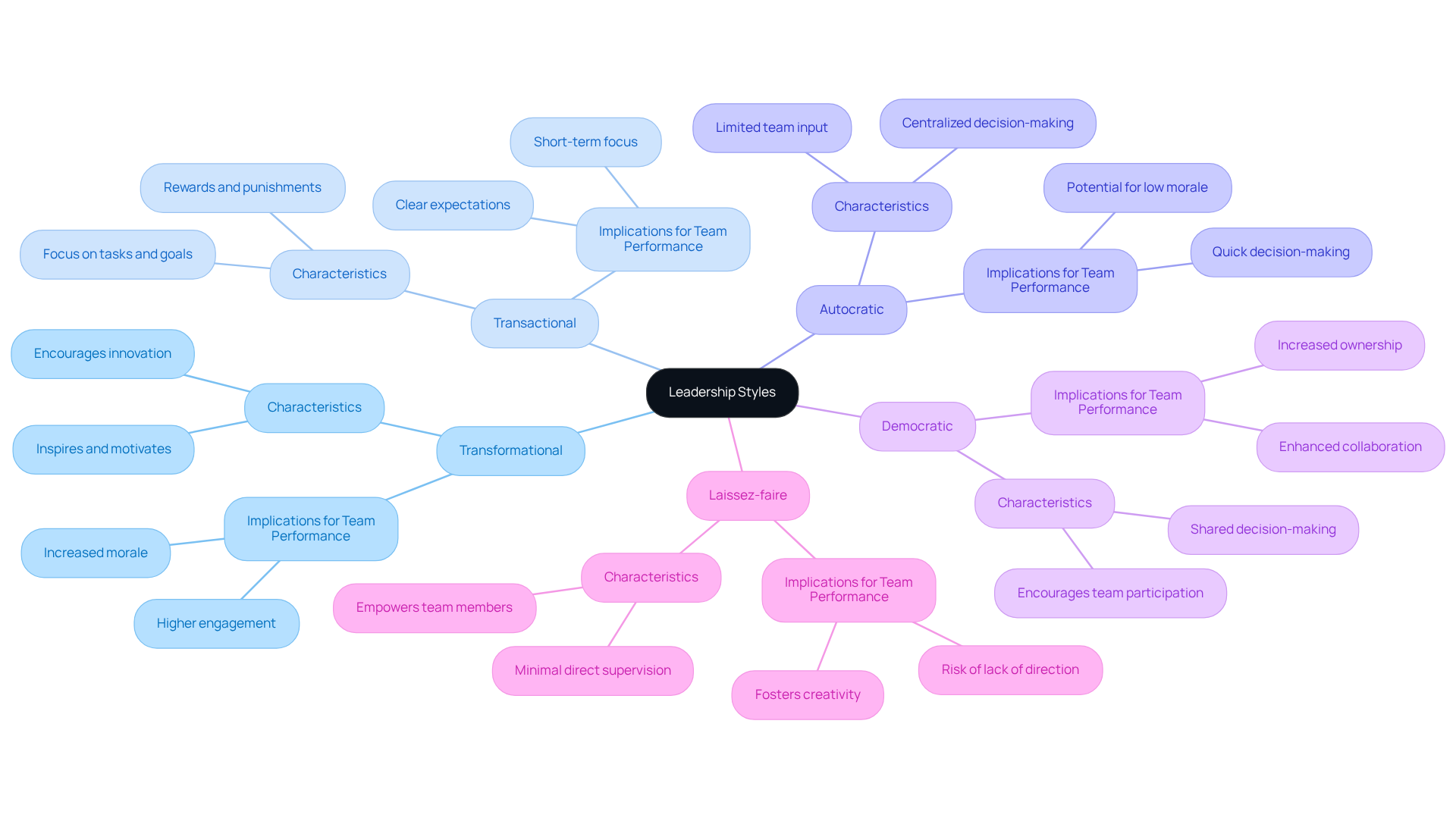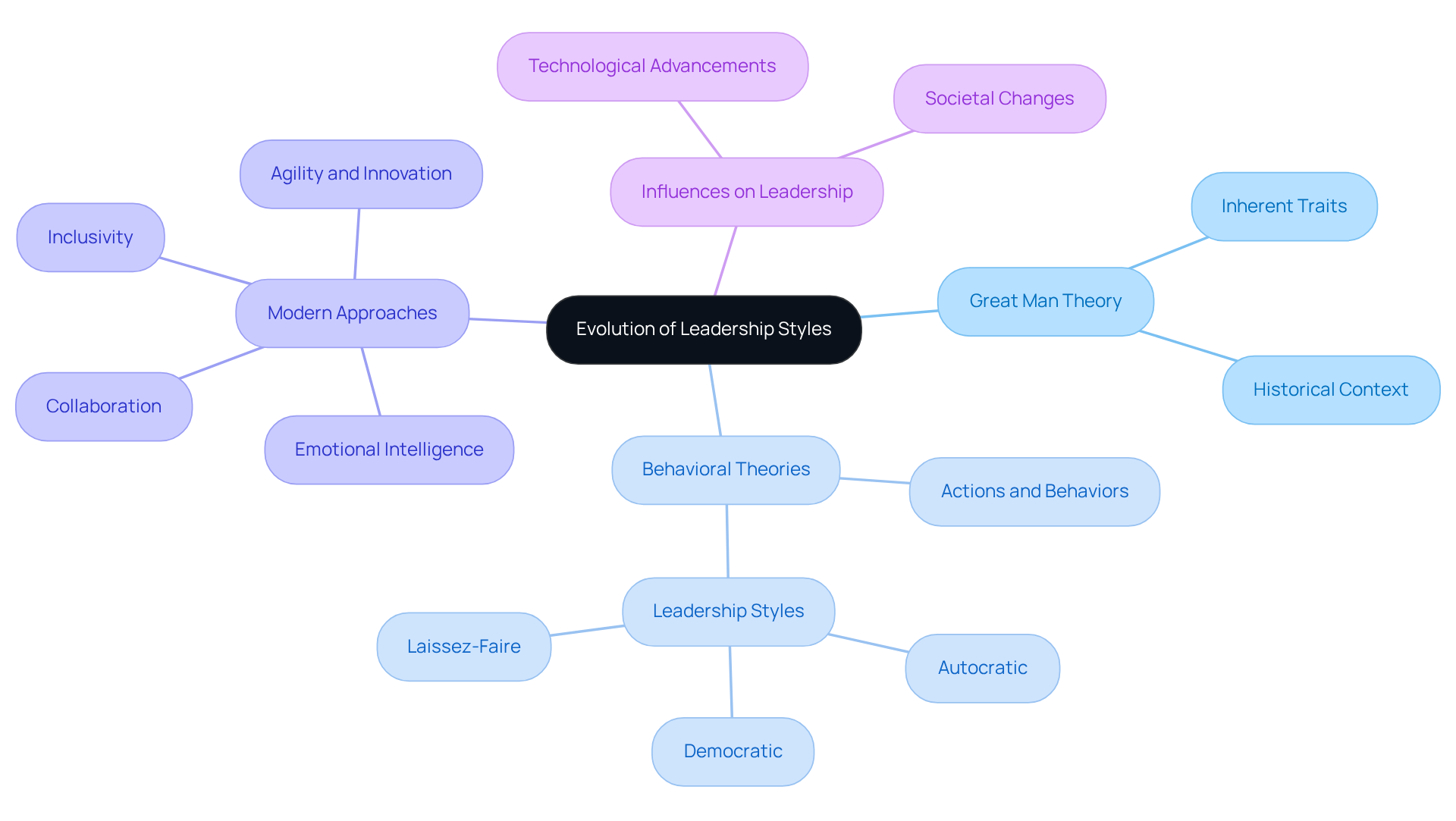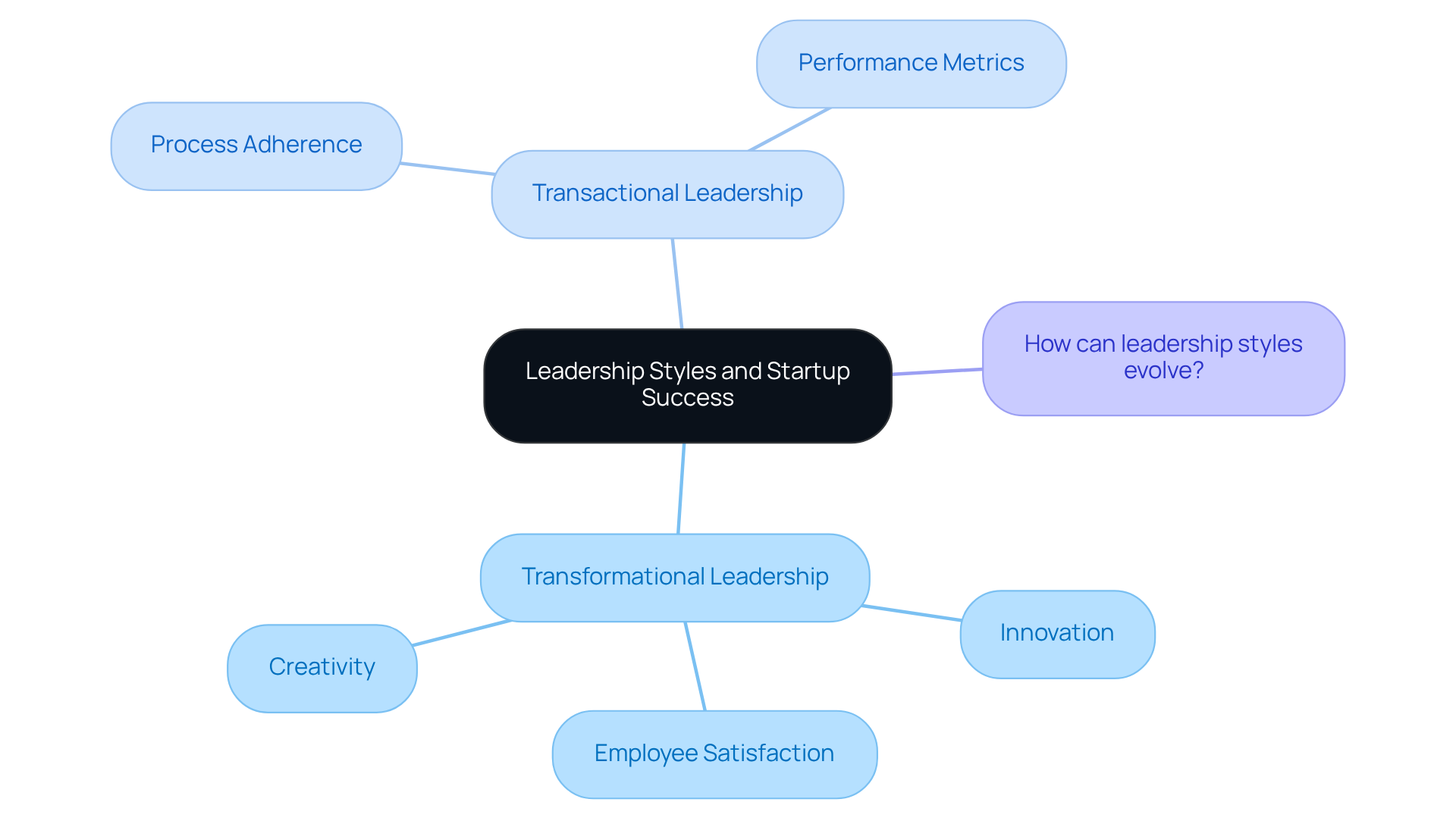Overview
Leadership styles exert a profound influence on startups, shaping team dynamics, employee morale, and overall organizational effectiveness. Different styles—such as transformational and transactional leadership—play distinct roles in fostering innovation or ensuring compliance. This highlights the critical need for adaptability in leadership approaches, enabling leaders to navigate the evolving challenges of the startup environment.
How can leaders effectively adjust their styles to meet these demands? By understanding the nuances of various leadership methods, startup founders can better position their organizations for success.
Introduction
Understanding the intricacies of leadership styles is crucial for startup founders navigating the competitive landscape of entrepreneurship. These varied approaches—ranging from transformational to autocratic—shape team dynamics, influence morale, and ultimately determine organizational success. With so many styles to choose from, how can leaders identify which approach will best foster innovation and adaptability in their teams?
Exploring the significance and impact of these leadership styles reveals not only their historical evolution but also the essential role they play in driving startup performance and growth. This exploration not only informs founders of the available options but also empowers them to make strategic choices that align with their unique organizational goals.
Define Leadership Styles and Their Significance
What are leadership styles? They encompass the various strategies leaders utilize to direct, inspire, and oversee their teams. These approaches significantly impact group dynamics, employee morale, and overall organizational effectiveness. Understanding these management approaches is essential for startup founders; the right method can foster innovation, enhance collaboration, and drive success. Consider what are leadership styles, such as:
- Transformational
- Transactional
- Autocratic
- Democratic
- Laissez-faire
What are leadership styles, and how do their unique characteristics and implications affect team performance?
What leadership style resonates with you? Reflecting on your own experiences can provide insight into the effectiveness of different methods. By recognizing the nuances of each approach, you can tailor your leadership style to meet the specific needs of your team and organization. This adaptability is crucial in today’s fast-paced business environment.
In conclusion, mastering these leadership methods not only positions you as an effective leader but also empowers your team to thrive. Embrace the opportunity to refine your approach and witness the transformative impact on your organization.

Explore the Historical Context and Evolution of Leadership Styles
The concept of guidance has evolved significantly over the years, influenced by societal changes, technological advancements, and shifts in organizational structures. Initially, theories such as the Great Man Theory suggested that leaders possess inherent traits. However, this viewpoint has transitioned towards behavioral theories, which emphasize the actions and behaviors of leaders. In today's landscape, management approaches have adapted to be more flexible, highlighting the importance of emotional intelligence, collaboration, and inclusivity. This transformation mirrors the evolving dynamics of the workplace, especially in fast-paced environments like startups, where agility and innovation are crucial.
Have you considered how these changes in guidance can impact your leadership style? As the workplace continues to evolve, understanding what are leadership styles is essential for fostering effective leadership. Embracing these contemporary management principles not only enhances team dynamics but also drives organizational success in an increasingly competitive landscape.

Identify Key Characteristics of Major Leadership Styles
Key characteristics of what are leadership styles are pivotal for understanding effective leadership within startups.
-
Transformational Leadership: This style focuses on inspiring and motivating team members to reach their full potential, embracing change as a catalyst for growth. How can leaders leverage this approach to foster innovation?
-
Transactional Leadership: Centered on structured tasks and rewards, this style emphasizes performance and compliance, ensuring that team members meet established goals. Are your team members adequately recognized for their contributions?
-
Autocratic Leadership: Involves making decisions unilaterally, which can lead to swift decision-making. However, this approach may stifle creativity. What balance can be struck between decisiveness and team input?
-
Democratic Leadership: This style promotes group involvement in decision-making, fostering a sense of ownership and collaboration. How does your team benefit from shared decision-making?
-
Laissez-Faire Leadership: Offering minimal direction, this approach allows group members to take the lead. While effective in highly skilled teams, it may result in a lack of guidance. Are your team members equipped to thrive in this environment?
Each of these leadership styles exemplifies what are leadership styles in the startup ecosystem, depending on the team's needs and the organization's objectives. Understanding these dynamics can empower leaders to adapt their approach effectively.

Analyze the Impact of Leadership Styles on Startup Success
The impact of what are leadership styles on startup success is profound. Transformational figures, for instance, inspire innovation and cultivate a culture of creativity, essential in the competitive startup landscape. In contrast, transactional leaders excel in environments requiring strict adherence to processes and performance metrics. Research indicates that startups guided by transformational leaders often experience greater employee satisfaction and retention rates. These leaders foster environments where team members feel appreciated and empowered.
Moreover, understanding what are leadership styles is crucial; as startups grow and evolve, leaders must adjust their approaches to meet new challenges and opportunities. This flexibility significantly enhances a startup's ability to navigate the complexities of growth and change. How can your leadership style evolve to better support your team's needs? Reflecting on this question may uncover valuable insights for your startup's journey.

Conclusion
Understanding leadership styles is crucial for startup founders, as these approaches shape team dynamics, influence employee morale, and ultimately determine organizational success. The various styles—transformational, transactional, autocratic, democratic, and laissez-faire—offer distinct strategies that can be leveraged to inspire and guide teams effectively. By recognizing and adapting these methods, leaders can create an environment that fosters innovation and collaboration, essential for thriving in competitive markets.
This article delves into the historical evolution of leadership theories, highlighting the shift from inherent traits to behaviors and emotional intelligence. Each leadership style possesses unique characteristics that can significantly impact team performance. For instance, transformational leaders cultivate creativity, while transactional leaders focus on structure and compliance. This adaptability enables leaders to meet the specific needs of their teams and organizations, enhancing overall effectiveness.
As the landscape of business continues to evolve, the importance of understanding and refining leadership styles cannot be overstated. Leaders are encouraged to reflect on their approaches and consider how they can adapt to better support their teams. Embracing the nuances of these leadership styles will not only empower individuals but also drive the success of startups in an increasingly dynamic environment.
Frequently Asked Questions
What are leadership styles?
Leadership styles are the various strategies leaders use to direct, inspire, and oversee their teams, significantly impacting group dynamics, employee morale, and organizational effectiveness.
Why is understanding leadership styles important for startup founders?
Understanding leadership styles is essential for startup founders because the right approach can foster innovation, enhance collaboration, and drive success within their teams.
What are some examples of leadership styles?
Some examples of leadership styles include Transformational, Transactional, Autocratic, Democratic, and Laissez-faire.
How do leadership styles affect team performance?
Leadership styles have unique characteristics and implications that can influence team performance by shaping group dynamics and employee engagement.
How can reflecting on personal experiences with leadership styles be beneficial?
Reflecting on personal experiences can provide insight into the effectiveness of different leadership methods, allowing individuals to tailor their style to meet the specific needs of their team and organization.
Why is adaptability important in leadership styles?
Adaptability is crucial in today's fast-paced business environment as it allows leaders to adjust their approach to better support their teams and organizational goals.
What is the overall significance of mastering different leadership methods?
Mastering different leadership methods positions individuals as effective leaders and empowers their teams to thrive, leading to a transformative impact on the organization.




